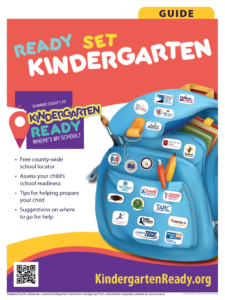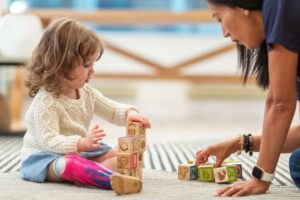Resources
1,000 Books Before Kindergarten
Read to your children as newborns, infants, toddlers and preschoolers. It makes for giggly, wonderous, cozy fun. It also sets them up for success in school by building language and pre-reading skills. Read 1,000 books before kindergarten and earn rewards for every 100 you share together.
Dolly Parton’s Imagination Library
Read to your child. Dolly Parton’s Imagination Library makes it easy to build a home library. It is free to residents of Shawnee County thanks to financial support from the Friends of the Library, Kansas Health Foundation, The Library Foundation, Topeka and Shawnee County Public Library and the United Way of Kaw Valley. Simply register each child under the age of 5 in your household. Eight to 10 weeks later, a new, age-appropriate book will be mailed each month to your address. If started from birth, a child can collect 60 titles. Reading together builds vocabulary, imagination, reading interest and most of all happy memories. Register to get your child’s free books.

Ready Set Kindergarten Booklet
Utilize this handy booklet as a guide for what you need to know about enrolling a child into Kindergarten.

Ages and Stages Questionnaires
As a parent or caregiver, you are the best source of information about what your child is doing. The Ages and Stages Questionnaires are reliable developmental screenings that can help you monitor behaviors you observe. Regular screening provides a fast and helpful look at how your child is doing in important areas like communication, social, motor and problem-solving skills. Screening can identify your child’s strengths, uncover new milestones to celebrate, and reveal any areas where your child may need support. It helps you understand your child’s development and know what to look for next. And it helps you work with doctors and educators to plan next steps when it makes the most difference—your child’s critical first years of life.
ASQ-3
The ASQ-3 looks at developmental progress in children between the ages of one month to 5 1/2 years. It asks you about what your child does on a daily basis in a natural setting like your home. It is strengths-focused– the emphasis on what your child can do. It takes 10-15 minutes to complete.
Tips:
- Try each activity with your child before you mark a response.
- Make this a game that is fun for you and your child
- Make sure your child is rested and fed before you start
- Have these items handy: Preschool Materials for ASQ-KS (agesandstages.com)
Areas of development that are looked at:
- Communication: Your child’s language skills, both what your child understands and what he or she can say.
- Gross Motor: How your child uses their arms and legs and other large muscles for sitting, crawling, walking, running and other activities.
- Fine Motor: Your child’s hand and finger movement and coordination.
- Problem Solving: How your child plays with toys and solves problems.
- Personal-Social: Your child’s self-help skills and interactions with others.
Responses:
- YES means that your child is performing the skill.
- SOMETIMES means that your child is just beginning to perform the skill or does it on occasion.
- NOT YET means that your child is not yet performing the skill.
Start ASQ-3 Questionnaire
ASQ-SE2
The ASQ-SE-2 looks at social-emotional progress in children ages 1 month to 6 years old. It is strengths-focused– the emphasis on what your child can do. It takes 10-15 minutes to complete.
Tips:
- Answer questions based upon your child’s usual behavior, not behavior when your child is sick, hungry or tired.
- Fill out the questionnaire only if you are someone who spends more than 15-20 hours a week with the child being screened.
Areas of development that are looked at:
- Autonomy: Your child’s ability or willingness to self-initiate or respond without guidance (moving to independence).
- Compliance: Your child’s ability or willingness to conform to the direction of others and follow rules.
- Adaptive functioning: Your child’s success or ability to cope with bodily needs (sleeping, eating, toileting, safety).
- Self-regulation: Your child’s ability or willingness to calm or settle down or adjust to physiological or environmental conditions or stimulation.
- Affect: Your child’s ability or willingness to demonstrate their own feelings and empathy for others.
- Interaction: Your child’s ability or willingness to respond to or initiate social responses with parents, other adults and peers.
- Social-communication: Your child’s ability or willingness to interact with others by responding to or initiating verbal or nonverbal signals to indicate interests, needs or feelings.
Responses:
- OFTEN OR ALWAYS means your child is performing the behavior frequently or all the time.
- SOMETIMES means the child is performing the behavior occasionally but not consistently.
- RARELY or NEVER means your child is not performing the behavior or is performing it rarely.

